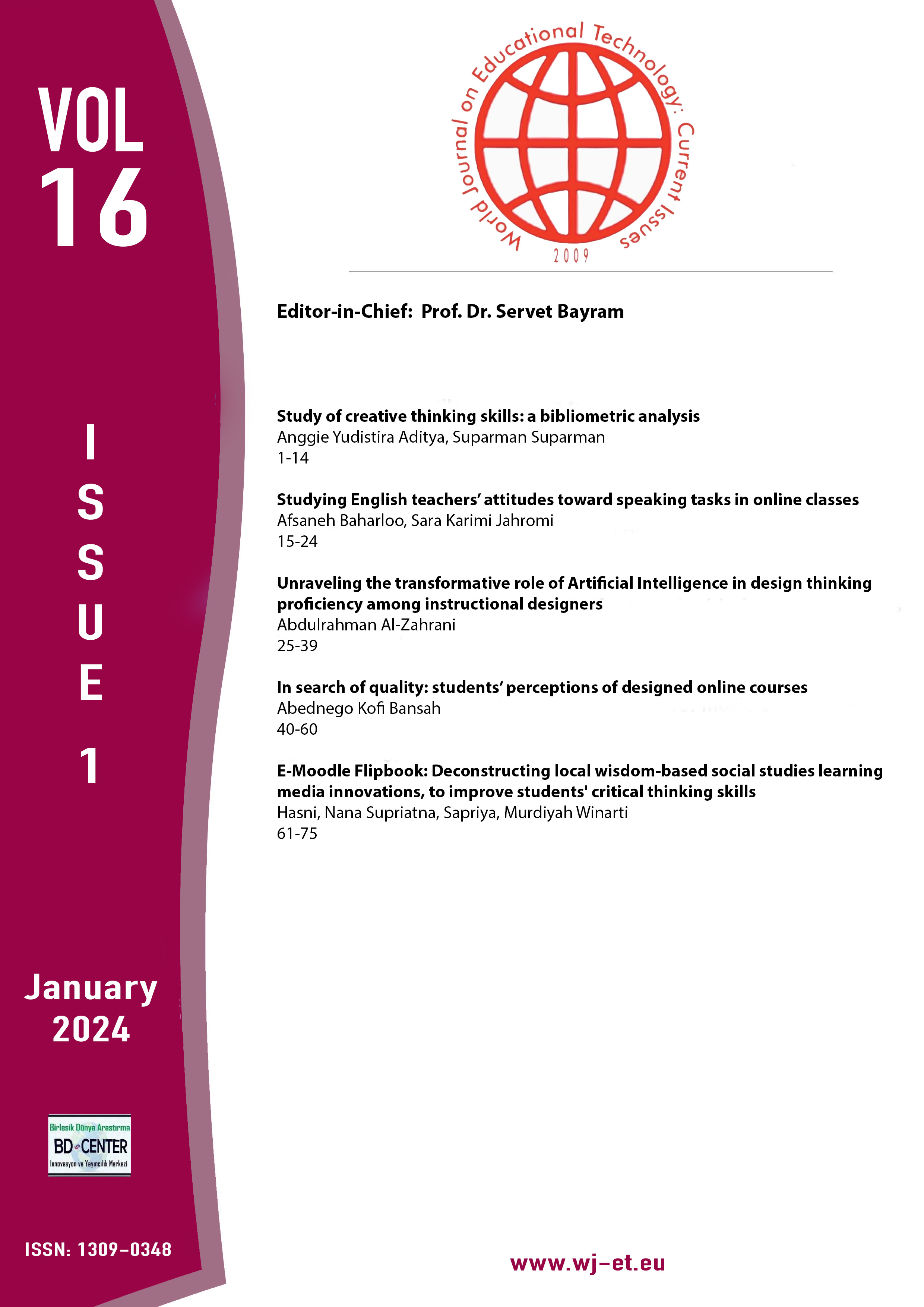In search of quality: students’ perceptions of designed online courses
Main Article Content
Abstract
Emphasizing, obtaining, and utilizing a standardized guide for online instruction can never be overemphasized. The study sought to explore the degree to which an adapted and modified Quality Matters Review Standards; students’ engagement, student support, and student learning reflected on students’ perception of designed online courses. Convenience sampling was employed to access 542 participants through a link situated in Google Forms via the student listserv. Data was analyzed using descriptive statistics and multiple regression analysis. Participants reported high positive perceptions on all the independent latent variables: students' learning, engagement, and support based on QM-rubric-designed online courses. The study revealed that all three variables contributed to predicting students’ evaluation of the designed online course. Higher education institutions especially the one under study should develop coherent strategies to integrate the QM-rubric as a pedagogical standard for best practice in delivering online learning.
Keywords: Online courses; pedagogy; quality matters rubric; students’ engagement; student learning; students support
Downloads
Article Details

This work is licensed under a Creative Commons Attribution 4.0 International License.
World Journal on Educational Technology: Current Issues is an Open Access Journal. The copyright holder is the author/s. Licensee Birlesik Dunya Yenilik Arastirma ve Yayincilik Merkezi, North Nicosia, Cyprus. All articles can be downloaded free of charge. Articles published in the Journal are Open-Access articles distributed under CC-BY license [Attribution 4.0 International (CC BY 4.0)].
Birlesik Dunya Yenilik Arastirma ve Yayincilik Merkezi (BD-Center)is a gold open-access publisher. At the point of publication, all articles from our portfolio of journals are immediately and permanently accessible online free of charge. BD-Center articles are published under the CC-BY license [Attribution 4.0 International (CC BY 4.0)], which permits unrestricted use, distribution, and reproduction in any medium, provided the original authors and the source are credited.
